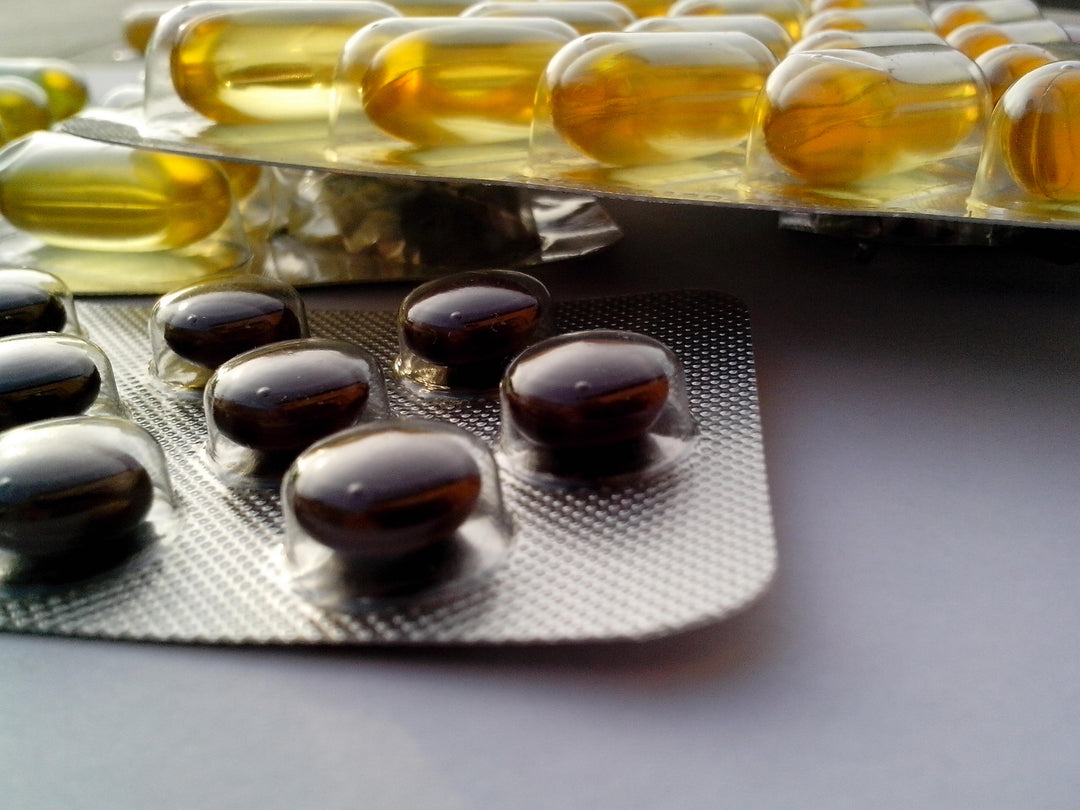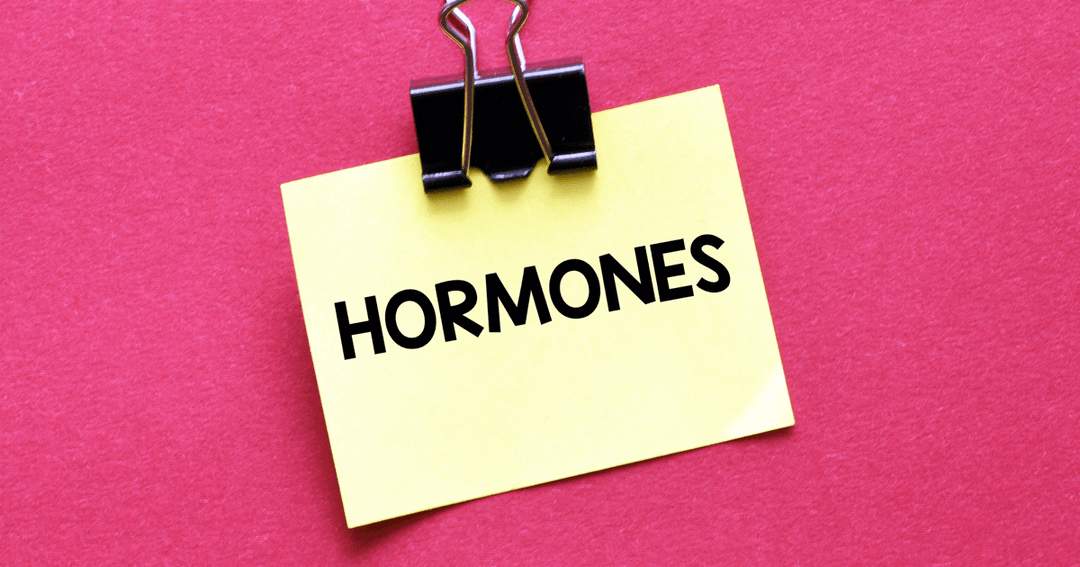Menopause is a big deal for women. It's a time of life that brings a whole host of changes—some physical, some emotional. And while every woman's journey is different, it's no secret that the shifting hormones can be tough to deal with.
Luckily, we're learning more and more about menopause every day, and that includes finding ways to make the transition a bit smoother. Supplements can be a big part of that, providing much-needed support when your body needs it most.
Whether you're just starting to notice changes, in the midst of hot flashes, or adjusting to post-menopause life, this guide has you covered. We've dug into the research and talked to our experts here at Check My Body Health to find the very best supplements for menopause.
Understanding Menopause and Its Symptoms
Before we get to the supplements, let's briefly review what happens during menopause and the common symptoms women experience.
What is Menopause?
Menopause is officially defined as the point when a woman has gone 12 consecutive months without a menstrual period. However, the transitional phase leading up to this point, known as perimenopause, can last for several years and is often when women start experiencing symptoms.
Common Menopausal Symptoms
While experiences vary, many women report a combination of the following symptoms:
- Hot flushes and night sweats
- Mood swings and irritability
- Anxiety and depression
- Sleep disturbances
- Vaginal dryness
- Decreased libido
- Joint and muscle pain
- Dry skin and hair
- Weight gain, especially around the midsection
- Fatigue
- Headaches
- Memory issues and difficulty concentrating
The Role of Supplements in Managing Menopause
While Hormone Replacement Therapy (HRT) is a common and effective treatment for menopausal symptoms, it's not suitable or desirable for everyone. This is where supplements can play a crucial role.
Supplements can help address specific symptoms, support overall health during this transition, and provide a natural alternative or complement to HRT. However, it's essential to remember that not all supplements are created equal, and what works for one woman may not work for another.
Top Menopause Supplements Recommended by Experts
Let's explore some of the most promising supplements for managing menopausal symptoms, backed by scientific research and expert recommendations.
1. Black Cohosh: Nature's Hot Flush Fighter
Black Cohosh (Cimicifuga racemosa) is one of the most well-studied herbs for menopause symptom relief.
Benefits:
- May reduce hot flushes and night sweats
- Can help alleviate mood swings and irritability
- May improve sleep quality
How it works: Black cohosh appears to work by influencing neurotransmitters in the brain, particularly serotonin, which can help regulate body temperature and mood.
Scientific backing: A meta-analysis of clinical trials found that black cohosh extracts produced a significant improvement in menopausal symptoms, reducing their severity by an average of 26% compared to placebo¹.
Usage tips: Look for standardised extracts and follow the dosage instructions carefully. It's not recommended for women with liver problems.
2. Soy Isoflavones: Plant-Based Oestrogen Support
Soy isoflavones are plant compounds that can mimic the effects of oestrogen in the body.
Benefits:
- May reduce hot flushes and night sweats
- Can support bone health
- May improve cognitive function
How it works: Soy isoflavones bind to oestrogen receptors in the body, potentially helping to balance hormone levels.
Scientific backing: A review of 19 randomised controlled trials found that isoflavone extracts significantly reduced hot flushes by 39% compared to placebo².
Usage tips: The effectiveness of soy isoflavones can vary depending on an individual's gut bacteria. Consider taking a probiotic supplement alongside soy isoflavones to enhance their effectiveness.
3. Flaxseed: Omega-3 and Lignan Powerhouse
Flaxseed is rich in lignans (another type of phytoestrogen) and omega-3 fatty acids.
Benefits:
- May help reduce hot flushes and night sweats
- Supports heart health
- Can improve skin hydration
How it works: The lignans in flaxseed may help balance hormone levels, while the omega-3 fatty acids support overall health and reduce inflammation.
Usage tips: Ground flaxseed is more easily absorbed by the body than whole seeds. Aim for 1-2 tablespoons daily, added to smoothies, yogurt, or oatmeal.
4. Sage Leaf: Cool Comfort for Hot Flushes
Sage has been used for centuries to address menopausal symptoms, particularly hot flushes.
Benefits:
- May reduce frequency and intensity of hot flushes
- Can improve memory and concentration
- May help with excessive sweating
How it works: Sage contains compounds that may have a cooling effect on the body and could influence oestrogen production.
Scientific backing: A study found that sage leaf extract reduced mild hot flushes by 46%, moderate flushes by 62%, severe flushes by 79%, and eliminated very severe flushes altogether within eight weeks³.
Usage tips: Sage can be taken as a supplement or enjoyed as a tea. If using as a tea, steep for 5-10 minutes to extract the beneficial compounds.
5. Evening Primrose Oil: Skin and Hormone Support
Evening primrose oil is rich in gamma-linolenic acid (GLA), an essential fatty acid.
Benefits:
- May improve skin hydration and elasticity
- Can help reduce breast tenderness
- May alleviate hot flushes
How it works: GLA is converted into hormone-like substances in the body that can help balance hormones and reduce inflammation.
Scientific backing: A study of perimenopausal women found that those who took evening primrose oil had significantly less severe hot flushes than those who took a placebo⁴.
Usage tips: Look for high-quality, cold-pressed evening primrose oil supplements. The typical dose is 500-1000mg daily.
6. Magnesium: The Mineral Multitasker
Magnesium is involved in over 300 enzymatic reactions in the body and plays a crucial role in bone health, energy production, and mood regulation.
Benefits:
- May improve sleep quality
- Can help reduce anxiety and mood swings
- Supports bone health
How it works: Magnesium helps regulate neurotransmitters that affect mood and sleep, and it's crucial for calcium absorption and bone formation.
Scientific backing: Studies have shown that magnesium supplementation can increase bone mineral density in postmenopausal women⁵.
Usage tips: Magnesium glycinate or magnesium citrate are well-absorbed forms. Aim for 300-400mg daily, but start with a lower dose and increase gradually to avoid digestive upset.
7. Vitamin D: The Sunshine Vitamin
Vitamin D is crucial for bone health, immune function, and mood regulation.
Benefits:
- Supports bone health
- May help reduce depression and anxiety
- Can improve immune function
How it works: Vitamin D helps the body absorb calcium, supports immune cell function, and influences the production of mood-regulating neurotransmitters.
Scientific backing: Low vitamin D levels have been associated with increased menopausal symptoms and higher risk of osteoporosis⁶.
Usage tips: Most people need 1000-2000 IU daily, but it's best to have your levels checked and supplement accordingly under medical supervision.
8. Omega-3 Fatty Acids: Heart and Brain Health Boosters
Omega-3s, particularly EPA and DHA, are essential for heart, brain, and joint health.
Benefits:
- May help reduce hot flushes
- Supports heart health
- Can improve mood and cognitive function
How it works: Omega-3s have anti-inflammatory properties and are crucial for cell membrane health.
Scientific backing: Some studies have found that omega-3 supplementation can reduce the frequency of hot flushes and improve psychological symptoms of menopause⁷.
Usage tips: Look for high-quality fish oil or algae-based supplements (for vegetarians/vegans). Aim for 1000-2000mg of combined EPA and DHA daily.
Creating Your Personalised Menopause Supplement Plan
While these supplements have shown promise in managing menopausal symptoms, it's important to remember that every woman's experience is unique. Here are some tips for creating a personalised supplement plan:
- Identify your primary symptoms: Focus on supplements that target your most bothersome symptoms.
- Start slowly: Introduce one supplement at a time to assess its effectiveness and any potential side effects.
- Be patient: Most supplements take 4-12 weeks to show noticeable effects.
- Consider interactions: Some supplements can interact with medications or other supplements. Always consult with a healthcare provider before starting a new regimen.
- Combine with lifestyle changes: Supplements work best when combined with a healthy diet, regular exercise, stress management techniques, and good sleep hygiene.
- Regular review: As your symptoms and health needs change, be prepared to adjust your supplement routine accordingly.
Beyond Supplements: Holistic Approaches to Menopause Management
While supplements can be incredibly helpful, they're just one part of a comprehensive menopause management strategy. Consider incorporating these additional approaches:
- Regular exercise: Particularly weight-bearing and strength training exercises to support bone health and mood.
- Mind-body practices: Yoga, meditation, and deep breathing exercises can help manage stress and improve sleep.
- Nutrition: A diet rich in whole foods, lean proteins, and plenty of fruits and vegetables can support overall health during menopause.
- Hydration: Staying well-hydrated can help with symptoms like dry skin and hot flushes.
- Sleep hygiene: Establishing a consistent sleep routine and creating a cool, comfortable sleep environment can improve sleep quality.
Empowering Your Menopause Journey
Navigating menopause can be challenging, but with the right knowledge and support, it can also be an empowering time of life. By understanding your symptoms and exploring natural supplement options, you can take an active role in managing your health and well-being during this transition.
Remember, what works best for you may take some trial and error to discover. Be patient with yourself, listen to your body, and don't hesitate to seek support from healthcare professionals when needed.
Ready to take the next step in your menopause wellness journey? Check My Body Health offers a wide range of high-quality supplements designed to support women through every stage of menopause. From targeted formulations for hot flush relief to comprehensive multivitamins for overall menopausal health, we have options to suit your unique needs.
Remember, your menopause experience is unique, and you deserve personalised support. Let Check My Body Health be your partner in navigating this important life transition with confidence and vitality.
References:
- Shams, T., et al. (2010). Efficacy of black cohosh-containing preparations on menopausal symptoms: a meta-analysis. Alternative therapies in health and medicine, 16(1), 36–44.
- Taku, K., et al. (2012). Extracted or synthesised soybean isoflavones reduce menopausal hot flash frequency and severity: systematic review and meta-analysis of randomised controlled trials. Menopause, 19(7), 776–790.
- Bommer, S., Klein, P., & Suter, A. (2011). First time proof of sage's tolerability and efficacy in menopausal women with hot flushes. Advances in therapy, 28(6), 490–500.
- Farzaneh, F., et al. (2013). The effect of oral evening primrose oil on menopausal hot flashes: a randomised clinical trial. Archives of gynaecology and obstetrics, 288(5), 1075–1079.
- Castiglioni, S., et al. (2013). Magnesium and osteoporosis: current state of knowledge and future research directions. Nutrients, 5(8), 3022–3033.
- LeBlanc, E. S., et al. (2015). Vitamin D levels and menopause-related symptoms. Menopause, 22(2), 152–157.
- Freeman, M. P., et al. (2011). Omega-3 fatty acids and supportive psychotherapy for perinatal depression: A randomised placebo-controlled study. Journal of Affective Disorders, 142(1-3), 57-64.






